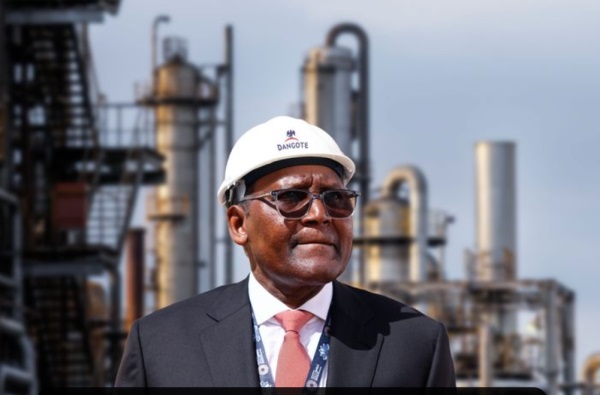
The recent export of jet fuel to Europe marks a monumental moment for Dangote refinery igniting hope for Nigeria and Africa’s energy independence. No longer just an importer, the refinery is creating a blueprint for how the continent could become a self-reliant petroleum powerhouse.
SPECIAL REPORT | BIRD AGENCY | Nigeria’s Dangote refinery, a 650,000 barrels per day facility, has recently exported its first-ever jet fuel cargo to Europe, a move that signals not just growing production, but Africa’s potential to become a major player in the global petroleum market.
S&P Global in a report on May 30 explains that Bp, a British multinational oil and gas company, transported the cargo, a 45000 mt supply from Lekki to Rotterdam in the Netherlands. This is the first batch of the 120000 mt tender it was offered.
“The inaugural European shipment demonstrates the growing reach of products from (the 650,000 b/d) Dangote refinery as it has rapidly ramped up operations and aims to shake up established West African trade flows,” the S&P report explains.
Apart from Bp, Cepsa, a Spanish multinational oil and gas company headquartered in Madrid, Spain has also been contracted to deliver an undisclosed amount of of jet fuel supply to the lucrative US$65 billion European market.
Less than a year since it was inaugurated, the refinery is proving to be a refining powerhouse.
According to industry experts the first export of jet fuel to Europe milestone shows it’s flexing its muscles and raises hopes on the ability to transform Nigeria into a net exporter of petroleum products.
“This reality would be a major economic boon for Nigeria and a significant step towards Africa’s energy independence,” Monica Amutala, a Kenyan entrepreneur in oil and gas, and economist explains.
Yet, it is not just the international market that is witnessing the impact of this transformative project. Initiatives are in top gear that promise to satisfy not only Nigeria’s domestic demand for refined products but also those of the continent.
At a May Africa CEO Forum in Kigali, Aliko Dangote, Africa’s richest man and CEO of Dangote conglomerate (which owns the refinery), hinted Nigeria could see domestic gasoline supply begin this month.
“Right now, Nigeria has no cause to import anything apart from gasoline and by sometime in June, within the next four or five weeks, Nigeria shouldn’t import anything like gasoline; not one drop of litre,” he explained.
Already, the facility is serving key markets within Nigeria and across West Africa with kerosene and other refined products. Dangote has exported six cargos of jet fuel/kerosene, all of which were delivered to Senegal, Togo, or Ghana.
The economic significance of this is huge, Nigeria spent more than US$8 billion (about N12trn) on the importation of petroleum products, including premium motor spirit (PMS) also known as petrol, in 2023.
Despite producing almost 10 million barrels per day, representing about 10% of global crude oil production, an estimated total of 1.9 million bpd of refined products are currently being imported by African countries costing countries billions of dollars.
In a June interview on CNN, Aliko Dangote explains that “Africa will destroy the industrialization of Africa, if we continue to import.”
“The more you import, you are importing poverty into your continent and exporting jobs. Because wherever you are importing from, you are encouraging them to keep expanding. When they expand, they recruit more people, give more jobs to their people. But here, the little jobs that we need to create, they destroy that. So, I’m not a big fan of imports,” he explained.
However according to industry analysts, the biggest impact of Dangote refinery in the long run will be when it makes the west African country self-sufficient by utilising its vast supply of crude oil.
“Shifting dynamics towards utilizing our own abundant crude reserves within the continent would be a game-changer. It would bolster regional trade, create jobs in the oil and gas sector across Africa, and enhance our overall energy security,” Amutala explained.
The Dangote refinery is currently importing crude oil from the US (West Texas Intermediate Midland) due to a range of reasons among them; a declining production in Nigeria, higher quality and more favorable pricing, according to Bloomberg.
“Developing robust intra-African crude oil pipelines and fostering stronger trade partnerships between producing nations and refining institutions would be key steps in this direction,” she added.
****
SOURCE: bird story agency
 The Independent Uganda: You get the Truth we Pay the Price
The Independent Uganda: You get the Truth we Pay the Price



